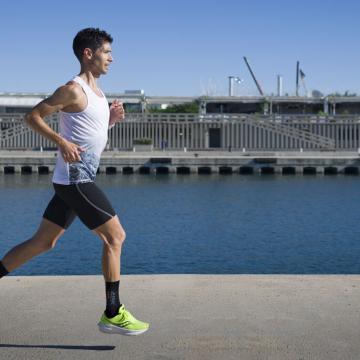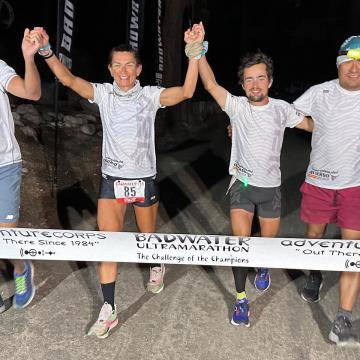Subscribe to our newsletter to find out about all the news and promotions, and automatically receive a welcome discount coupon in your email.

The sudden death of athletes has been causing great social and family commotion for years, in addition to monopolizing the attention of the media. But the great doubt seems to remain in the aire: Does elite sport really harm the heart? In the last two decades, the scientific community has been turning its efforts to find a convincing answer to this question and each time they provide more data that come closer to it.
Thus, ELMUNDO.es recently echoed an investigation that recognized that long-term endurance sport damages the right ventricle in elite athletes, creating a substrate for arrhythmias.
Today, however, researchers from the Massachusetts General Hospital (USA) have carried out a study with 10 million marathon runners between 5 and 2000 in which it is determined that the risk of heart attack or sudden death among its participants is very low. In fact, only 2010 of all of them suffered a heart attack, of which 59 died from it.
Explanations
Josep Brugada, medical director of the Hospital Clínic of Barcelona and one of the scientists who has most investigated the relationship between sport and heart damage, clarifies the discrepancies between the different studies to ELMUNDO.es: «Endurance and long-term sport could cause damage to the heart, which is why athletes who practice it, and in whom there is no evidence of previous cardiac pathology, have to undergo an annual check-up to rule out damage to the heart. However, in this latest American study, although the risk of heart attack is very low (one case per 185.000 runners), the deaths that occurred could have been avoided if the participants had undergone a prior electrocardiogram.
Indeed, American scientists, led by Aaron Baggish, acknowledge in their article: "We studied cases of heart attack (defined as those in which the patient is unconscious, with spontaneous absence of pulse and breathing, documented by health professionals) that occurred during races or one hour after competitions in long-distance (40 kilometers) or medium-distance (20 km) marathons.
Subsequently, and "after verifying the number of cardiac arrests that occurred and the number of patients who survived them (those who received cardiopulmonary resuscitation successfully and were subsequently admitted to a hospital), we investigated their personal data, medical history, risk factors and previous diagnosis of cardiac pathology. Likewise, the autopsies of the deceased runners were examined.
Without prior check
Of the 59 marathoners who suffered a heart attack, the authors only had a detailed medical history for 31 of them, of which 23 died (autopsies). The reason for death in 15 of the participants was hypertrophic cardiomyopathy (HCM), an inherited disease that directly affects the heart muscle and is commonly known as athlete's disease.
«The data shows that something is wrong in the American system because runners can do effort competitors without having been previously seen by a doctor, as shown in the research. This should not happen in Europe, where prior electrocardiograms are recommended and if something 'strange' is detected, other tests are added. In fact, the majority of deaths have occurred in participants with undiagnosed hypertrophic cardiomyopathy, which is usually detected by testing,” determines Dr. Brugada.
Other data provided by the research is that those affected by heart attacks were mostly men, with an average age of 42 years. However, mortality was higher among younger competitors (under 40 years old) than among older competitors (40 or older). "This fact is explained because young athletes who suffer cardiac arrest are more likely to suffer from HCM," insists the expert.
However, "among heart attack survivors, coronary heart disease was the underlying pathology although there is no evidence that any atheromatous plaque ruptured," the study details. The reason, according to the Clínic specialist, is that "the attack is not caused by a thrombosis but by what is known as demand ischemia in which the heart is forced and forced until it causes ventricular fibrillation," explains Josep. Brugada.
Exhibition in Boston
For the US scientists, one of the best messages from the trial is that patients who underwent cardiopulmonary resuscitation (CPR) were the most likely to survive, a relatively simple system that can be learned by the entire community. "Recognition of the importance of this technique requires a wake-up call, which is why we are offering the first CPR educational session to runners, family members and spectators at this year's Boston Marathon."
A measure that does not overshadow the need recognized in the study's conclusions by the researchers: "The rates of cardiac events have increased in the last decade among male marathon runners. "Physicians should be aware of the risk of hypertrophic cardiomyopathy and atherosclerotic disease in potential race participants."
Source: the world
Other entries that they may interest you.
42K · All rights reserved














Comments
Post a first comment for this entry!